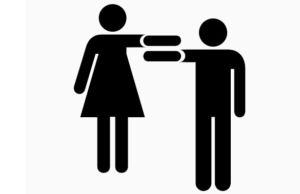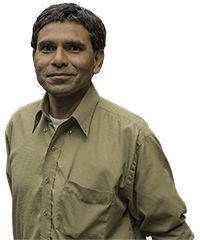Opinion
Mishra’s Mishmash: Is #MeToo tipping the balance to the extent that most men feel marginalised?
Mishra
This article is more than 5 years old.

Is the playing field in Denmark less level than before? (photo: thenounproject.com)
With the possibility of a second wave of the coronavirus pandemic becoming increasingly real, the Danes once again have to embrace the idea of isolating themselves. Travelling to neighbouring countries will be restricted to a bare minimum and social contact is being drastically reduced.
Pandemic #MeToo
But it is not just the fear of an infectious disease that is keeping people from interacting, as the country seems to be affected simultaneously by a second wave of the #MeToo movement, which is affecting almost all of the political parties in Denmark.
Morten Østergaard, the leader of one of the oldest political parties, Radikale, recently had to leave his post because of allegations of sexual misconduct. Similar allegations forced Frank Jensen, the mayor of Copenhagen to resign on October 19.
The allegations are not recent and some are as old as 10 years old, but they are being aired as the second wave of the movement is hitting the Danish shores. Most political pundits predict that many leaders and politicians may lose their posts.
Many renowned male journalists are also being accused of sexual misconduct. This has already resulted in one journalist from Danmarks Radio being sent home (on the very same day as Jensen stepped down) and his popular radio show ‘Shitstorm’ being discontinued.
Time to draw new boundaries
Over the last few weeks, prime-time news on Danish television has been totally dominated by the sex scandals,. Across the board, film directors, chief executives and other men in powerful positions are being accused of misusing their power and demanding sex in exchange for contracts, promotions and career advancement.
Hopefully, this focus on these cases of sexual harassment will result in a cultural revolution, so that in the future sexual misconduct in the workplace will not be tolerated, with swift dismissals the norm when there is crystal clear evidence.
One hopes that young people will learn from this and respect one another’s boundaries. It should become an obligatory part of the school curriculum to teach students about appropriate sexual behaviour.
War of the genders
But not everyone agrees with the political movement sweeping the country. Scepticism towards this movement is on the rise as well. Even women are asking why is it that these issues of sexual misconduct were not raised 10 years ago. Why is it that women who complain of sexual misconduct within political parties are later found partying and jovially hugging those very same men a year later? Is this about women getting more power in society?
Never, in Denmark’s entire history, have there been so many women in positions of power. The bosses of most media houses, especially television channels, are women. The country is led by a female prime minister, and women have increased their representation in almost all fields of influence in Denmark, including science and technology, so why is a gender war breaking out? Is this second wave a new way of marginalising men?
Culture of fear
Hans Bonde, a famous researcher, has written a book, ‘Vi vil have vores fair andel’ (we want our fair share), which claims that a group of feminists in Denmark are systematically pushing men out of jobs. The marginalisation of men and discrimination against men in the workplace in Denmark is common, he claims.
It is men who need support now in Denmark, and there should be quotas for men to help them get back into jobs in attractive sectors, he argues. Two-thirds of all school teachers are women, most of the doctors today in Denmark are women, while most of the school dropouts with no future are boys.
As the gender war rages in Denmark, there is one obvious consequence: more loneliness and less social interaction. Who wants to risk his career by flirting with the wrong person? A false accusation could ruin your career. Denmark has the highest share of single parent households in the EU. While the country boasts of being one of the happiest in the world, it is probably also a country where the personal and political choices of its population are making a large portion of them lonelier.
Only time will tell whether these recent cases of sexual harassment will create a new culture of mutual respect or whether it will create a culture of fear?

About
Mishra










































